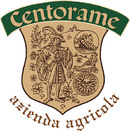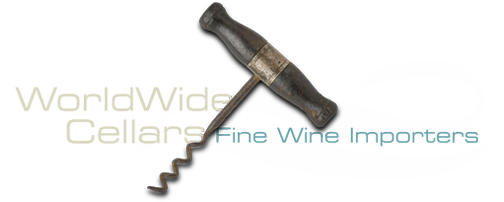Centorame
 Lamberto Vannucci’s father purchased their 9 Ha in the Colline Teramane area in 1987, but it wasn’t until 2002, when Lamberto was just 24 years old, that the family turned over management to Lamberto and the first vintage was produced – previously selling off grapes to other bottlers. They have come a long way in a short time, now producing wines that could be called benchmarks for their appellation.
Lamberto Vannucci’s father purchased their 9 Ha in the Colline Teramane area in 1987, but it wasn’t until 2002, when Lamberto was just 24 years old, that the family turned over management to Lamberto and the first vintage was produced – previously selling off grapes to other bottlers. They have come a long way in a short time, now producing wines that could be called benchmarks for their appellation.
Their vineyards – less than 5km from the Adriatic Sea and averaging about 200m in altitude, are managed as sustainably as possible, using no fertilizers of any sort. Lamberto believes in “using slow, good machinery that respects the grape.” The now 13-hectare organic estate uses massive solar panel towers to create all its energy needs and more.
Each wine is produced with a single, autochthonous local grape varietal, and can be considered a "Cru" as each wine comes from a single vineyard. The Castellum Vetus wines, Montepulciano d'Abruzzo Colline Teramane DOCG and Trebbiano d'Abruzzo DOC, take their name from the ancient castle of the Dukes of Acquaviva present in Casoli in 1300. These are grand, age-worthy wines, destined to become important in Italian wine legend. The San Michele label, the name of the ancient contrada or "neighborhood" where the winery is located, presents the classic line of Montepulciano d'Abruzzo DOC, Trebbiano d'Abruzzo DOC, Cerasuolo d'Abruzzo DOC. The "Liberamente" range of wines is made with natural, spontaneous fermentation and no added sulfur.
Two concepts near and dear to our hearts – protection of the sense of “terroir” and the preservation of indigenous varietals – are central to Lamberto’s philosophy. A manual green harvest is performed each summer to achieve the optimum yields for each varietal, all fruit is picked by hand into small boxes and is vinified immediately using soft pressing techniques and using controlled temperature.
Colline Teramane is a DOCG born in 2003 – named for the town of Teramo. It requires certain vine densities of Montepulciano, low yields, and of course provenance in the delimited zone of the DOCG. It also requires two years of elaboration, at least one of which is in barrel of oak or chestnut.
Quick Facts
Winery: Centorame
Region: Abruzzo
Locale: Casoli di Atri, Italy
Farming: Uses sustainable and organic practices
